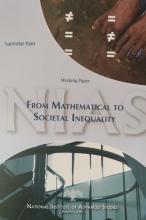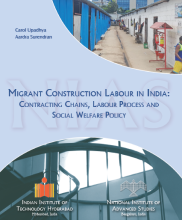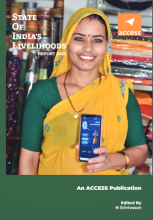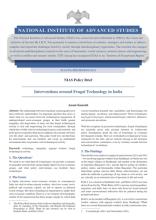Publications

|
Mythili Ramchand Quality, equity, and scale in the Indian School Education System: Large-scale policy reforms https://epaa.asu.edu/index.php/epaa/article/view/9013 Ramchand, M., & Chandran, M. (2026). Quality, equity, and scale in the Indian School Education System: Large-scale policy reforms. Education Policy Analysis Archives, 34. https://doi.org/10.14507/epaa.34.9013 |

|
Mythili Ramchand Knowledge, Curriculum and Learning: Knowing Why We Teach, What We Teach and How We Learn https://www.routledge.com/Knowledge-Curriculum-and-Learning-Knowing-Why-We-Teach-What-We-Teach-and-How-We-Learn/Ramchand-Sawhney-Sharma/p/book/978036… Ramchand, M., Sawhney, S., & Sharma, P. (2026). Knowledge, Curriculum and Learning: Knowing Why We Teach, What We Teach and How We Learn. Taylor & Francis. |

|
Narendar Pani From Mathematical to Societal Inequality http://eprints.nias.res.in/3034/ Pani, Narendar (2025) From Mathematical to Societal Inequality (NIAS/SSc/IHD/U/WP/01/2025). Working Paper. NIAS, Bengaluru. |

|
Carol Upadhya Migrant Construction Labour in India: Contracting Chains, Labour Process and Social Welfare Policy http://eprints.nias.res.in/3029/ Upadhya, Carol and Surendran, Aardra (2025) Migrant Construction Labour in India: Contracting Chains, Labour Process and Social Welfare Policy (NIAS/SSc/UMS/U/PR/01/2025). Project Report. NIAS & IITH, Bengaluru. |

|
Chetan Choithani Rural-Urban Migration and Urban Livelihoods in India https://livelihoods-india.org/wp-content/uploads/2025/12/SOIL-Report-2025-Livelihoods-India.pdf#page=119 State of India’s Livelihoods Report 2025 This article looks at the nature and patterns of urban livelihoods in India, with a focus on low-skilled migrant workers engaged in the informal sector. It places urban livelihoods in the broader context of structural transformation and livelihood change in India and shows that even though migrant workers contribute significantly to country’s increasingly urban-centric economy, they remain ignored in policymaking. The paper analyses the reasons for this disregard and argues for the need to integrate low-skilled migrant workers in India’s urban policy to promote inclusive and sustainable development. |

|
Anant Kamath Interventions around Frugal Technology in India http://eprints.nias.res.in/3004/ NIAS Policy Brief (NIAS/SSc/IHD/R/PB/04/2025) |

|
Shruti Shankar Silent Casualties: Languages in the Wake of Skill Subjects https://www.epw.in/journal/commentary/silent-casualties.html Shanka, Shruti (2025) Silent Casualties: Languages in the Wake of Skill Subjects. Economic and Political Weekly, 60 (45). pp. 23-25. Skill training has been fervently promoted as one of the primary means to prepare for work at increasingly earlier stages of the compulsory formal education system. In a state such as Karnataka, where diverse linguistic cultures exist in schools, skill-based subjects have encroached upon the space of language subjects and teaching. |

|
Mythili Ramchand Beyond a Global Assessment Imaginary https://journals.sagepub.com/doi/10.1177/09731849251378219 Ramchand Mythili, Gulati Nidhi and Kumar Ruchi (2025) Beyond a Global Assessment Imaginary. Contemporary Education Dialogue, 22 (3). pp. 367-374. |
